In the modern world, it’s important always to be aware of your safety. There are several ways you can protect yourself from dangerous situations and crime. One of the most basic things you can do is to stay alert and watch out for suspicious behavior.
Injury prevention is important for both individuals and society as a whole. We must work to reduce the number of injuries that occur each year, as this will save both money and lives. Personal safety and injury prevention is a topic that’s relevant to everyone, no matter what their occupation or lifestyle may be.
It’s important to understand the risks you and your family face to take appropriate steps to protect yourself. We’ll be covering six personal safety & injury prevention tips that will help you stay safe no matter where you are. From safety tips for home to safety tips for traveling, these tips cover it all. So make sure to read through and take note of the safety precautions that will keep you and your loved ones safe.
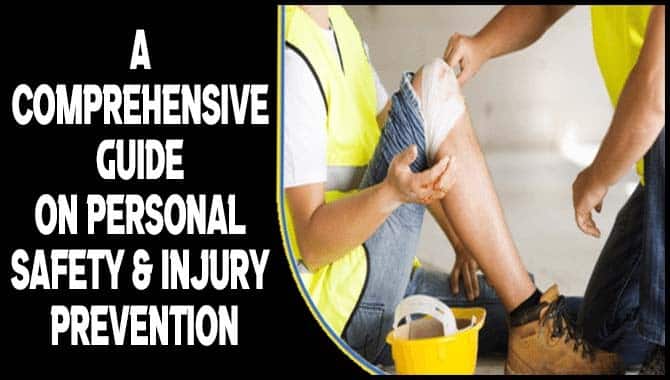
6 Tips For Personal Safety & Injury Prevention
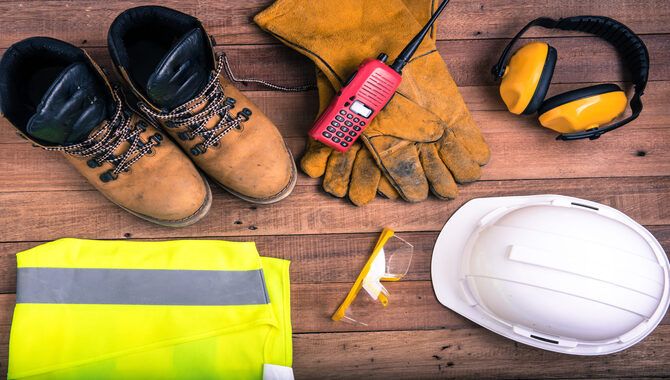
It is important to be aware of the risks of being a personal safety risk. This includes being vulnerable to crime, injury, or even death. There are several ways you can protect yourself from these risks. One of the most important things you can do to stay safe is to be aware of your surroundings and alert for potential dangers. You can do to keep yourself safe and reduce your risk of injury. Here are 6 tips.
1. Know Your Surroundings
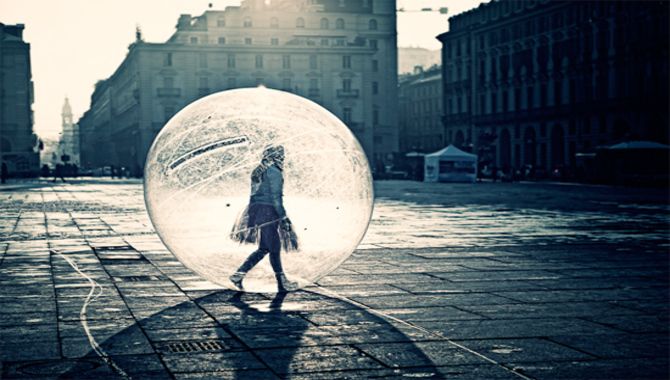
It’s important to know where you are and what’s around you in case you need to make a quick escape or take measures to protect yourself. Be aware of your surroundings at all times, especially when walking in unfamiliar areas or when there’s a potential danger.
If you feel something is off, don’t hesitate to take action. Always keep an eye out for suspicious characters or behaviors. If someone seems shady or dangerous, don’t trust them – especially if they try to ply you with alcohol or drugs. Report any strange behavior to the authorities so that they can take the necessary precautions.
2. Stay Alert And Watch Out For Suspicious Behavior

It’s always important to stay alert and watch out for suspicious behavior. This includes being overly pushy, acting too desperate to sell your product or service, or making sudden changes in your manner or attitude. If you notice any of these behaviors from someone you’re working with, it’s best to take a step back and assess what’s happening.
If you feel something isn’t right, it’s always best to report it to your supervisor or contact the appropriate authorities. Doing so can protect yourself and other people involved from potentially dangerous situations.
3. Don’t Walk Alone

If you’re looking for a way to make extra money, consider walking or taking public transportation. Walking and taking public transportation are great alternatives to cars because they burn less fuel, are more environmentally friendly, and help reduce road congestion.
Studies have shown that even a short walk can boost your mood and improve your mental health. If you decide to drive, be aware that traffic can be quite congested and unpredictable – which is not ideal for anyone who wants to make a quick buck. If you can avoid driving altogether and use other forms of transportation instead, that’s the best option.
4. Don’t Drink And Drive
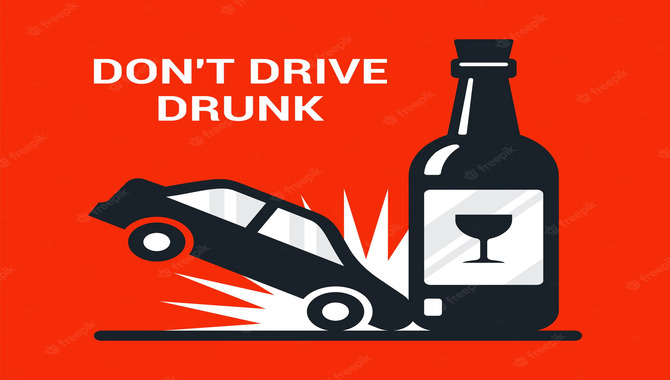
Drinking and driving are one of the most dangerous things you can do. Not only does it put your safety at risk, but it also puts the safety of others on the line. If you’re drinking alcohol, don’t drive – period. Even if you have a valid driver’s license from another country or province, don’t try to get behind the wheel if you’re under the influence.
If caught driving while impaired by alcohol, you could face serious penalties, including fines, jail time, and even a revoked driver’s license. If you know someone drinking and driving. Please don’t leave them alone – stay with them until they are safely home. If they refuse to take a taxi or ride with somebody else, call 9-1-1 so that emergency services can take them home safely.
5. Dress Appropriately For The Weather

When dressing for the weather, it’s important to remember that not all clothes are suitable for all temperatures. For example, if you’re going to be outside in the cold weather, you’ll need something warm and protection from the wind. On the other hand, wearing a heavy coat will be counterproductive if it’s hot outside – you’ll end up sweating more and getting hotter.
There are three main types of clothing that you should wear when it’s cold or hot outside: underwear, pants, and a shirt. Underwear is necessary because it keeps you warm, while pants and shirts protect you from the elements and keep you dry. Consider adding an extra layer, like a coat or scarf, to your outfit if it’s cold or hot. And finally, always remember the sunscreen. Even if you’re inside, the sun can still cause damage to your skin.
6. Be Aware Of Your Surroundings At All Times

It’s important to be aware of your surroundings at all times, especially when you’re walking around town. You can increase your safety and protect yourself from injury in several ways. One simple way is to avoid walking alone at night. This is especially important if you live in a city – more criminals are looking to attack someone unarmed.
Criminals generally choose areas where they believe people are least likely to fight back, like busy streets and shopping districts. Also, make sure you take the time to look both ways when crossing the street. Not only will this help you avoid getting hit by a car, but it will also give you a chance to see if there’s anyone following or stalking you. If someone is following or stalking you, don’t hesitate to call the police and report the incident.
Finally, always carry identification with you if something happens and you need help quickly. Ensure it includes your full name, address, photograph, and contact information. That way, if something does happen and you can’t find your phone or wallet, someone will be able to locate you quickly and reunite you with your belongings.
How To Prevent Injuries At Home
You can do a few things to help prevent injuries at home. First and foremost, make sure to stay safe when handling sharp objects. Avoid touching them with your hands, and use a tool like a broom or a mop. When handling them, be careful not to hit your head or eye.
And always wear safety goggles when working with power tools. Another important tip is to keep your home clean and clutter-free. This will make it easier to see what’s around you and avoid slipping on puddles or tripping over cords and cables. Finally, remember the stairs – always use caution when going up or down them, and watch out for sudden movements on the steps below you.
How To Prevent Injuries While Traveling

When traveling, it’s important to take safety precautions to avoid personal injuries. Some of the most important safety tips include: Always wear a life jacket when swimming in open water, know the signs of drowning, be aware of your surroundings at all times, and don’t hesitate to call for help in case of an emergency.
However, accidents happen even to experienced adventurers. So, feel free to take safety precautions even if you think you’re a seasoned traveler. The best way to prevent injuries is to be safe and aware.
How To Deal With Workplace Injuries If They Occur?
Workplace injuries can be scary and can leave you feeling helpless. But don’t worry – there are steps you can take to protect yourself and get the compensation you deserve if you are injured at work. First and foremost, if you are injured at work, the first thing to do is seek medical attention.
This will help you determine the extent of the injury and decide on the best course of action. Depending on the circumstances, you may also be entitled to compensation for your injuries.
In some cases, you may be able to file a claim with your employer or insurance company. If an injury occurs, understand your rights and how to file a claim. This will help you build a case and get the compensation you rightfully deserve.
How To Prevent Injury While Working
Injuries can happen anytime; unfortunately, they often occur during work. To prevent injury, use safety equipment when working in the garden, yard, or petting zoo. It’s also important to wear a helmet when playing contact sports like football and basketball.
Be aware of your surroundings and watch for signs that someone may be injured or dangerous. Finally, alert someone if you feel unwell or believe someone else may be in danger. By following these safety tips, you can reduce the chances of experiencing an injury while working.
Injury Prevention Tips For The Home
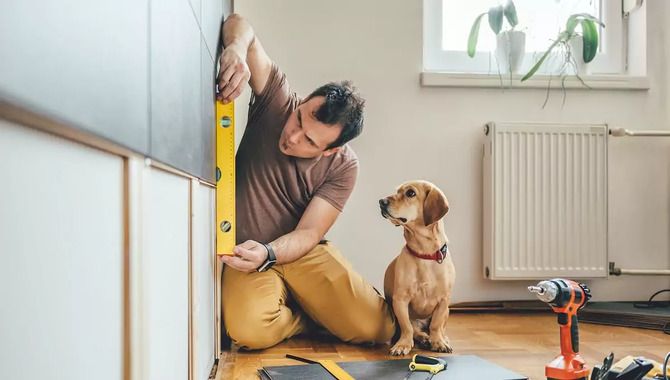
Injury prevention is crucial if you want to stay safe and injury-free. You may also be entitled to compensation for your injuries; here are some safety tips to keep in mind when you’re at home:
- Always use safety equipment when playing any sport or engaging in any risky activity.
- Keep an eye on children at all times – they’re more likely to take risks than adults are.
- Be aware of your surroundings at all times, and watch for potential hazards while you’re in your home or garden.
- If you’re ever in an accident, know how to seek help and get medical attention as soon as possible.
How To Deal With Personal Injury?
There are several things you can do to protect yourself from personal injury. First and foremost, be aware of your surroundings at all times. If you’re ever in doubt about whether or not it’s safe to proceed, then it’s best to stay put and wait for help to arrive.
Also, make sure that you always wear a safety helmet when riding a bike or skiing. This will help prevent head injuries and other accidents. And, if you get injured, don’t hesitate to seek medical attention as soon as possible. Doing so will minimize the chances of developing serious complications.
Finally, keep an emergency fund aside in case of an unexpected injury or illness. This will help cover the costs associated with hospitalization or surgery and provide some financial relief in the aftermath of a traumatic event like a car accident or assault.
Conclusion
As we reach the end of the year, you must consider some personal safety issues you must be aware of. There are several things that you can do to help prevent injury. The is to be aware of the dangers and take precautions when possible. For example, stay away from dangerous terrain, don’t jump off high cliffs, and beware of slippery surfaces.
In today’s world, maintaining personal safety and injury prevention is more important than ever. Following the tips, you can stay safe and healthy at home and while traveling. In addition, if you ever find yourself in a sticky situation, know how to deal with it effectively. Finally, read regularly for updated information on personal safety and injury prevention.
Frequently Asked Questions
1.Is There Any Evidence That Wearing A Helmet Prevents Head Injuries In Motorcycle Accidents?
Ans: There is significant evidence that wearing a helmet reduces the risk of head injury in motorcycle accidents. According to the National Highway Traffic Safety Administration, helmets reduce the risk of death by 37% and the risk of head injury by 69%.
2.Can I Wear Earplugs If I Don’t Want To Wear A Helmet While Riding My Bike?
Ans: It’s best to always wear a helmet when riding a bike, but if you don’t want to wear one, you can use earplugs. However, earplugs won’t protect your head from serious injury in a motorcycle accident.
3.What Is Personal Safety, And How Can It Be Improved?
Ans: You can improve personal safety through various measures, including wearing a safety helmet when riding a bike or skiing, maintaining an emergency fund, and avoiding dangerous behavior.
4.Which Type Of Personal Safety Training Would You Recommend To Someone Who Wants To Learn More About Personal Safety?
Ans: Several personal safety training courses can help individuals learn about safety issues and how to protect themselves. Some good options include emergency first-aid courses and self-defense classes.
5.How Can I Protect Myself From Injury While Working On A Construction Site?
Ans: You can take several safety measures while working on a construction site. Some important tips include wearing safety goggles, using proper personal protective equipment (PPE), and knowing the warning signs of dangerous conditions.

Leave a Reply